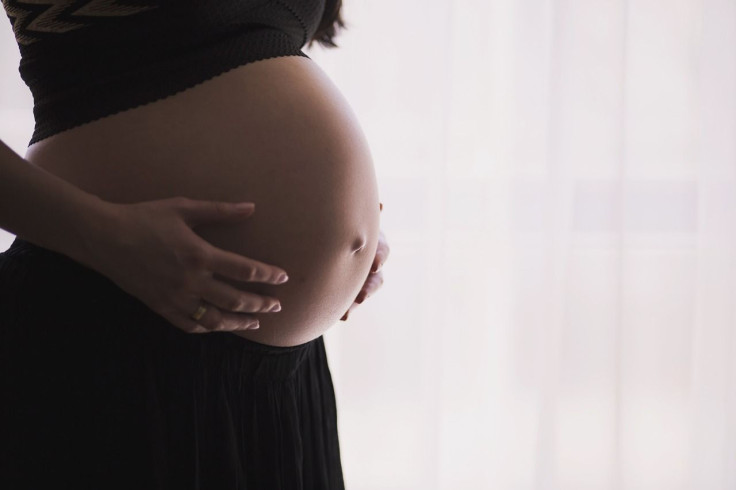Does Mom's Depression During Pregnancy Affect the Children Later in Life?
Mental health professionals have long known that children raised by mothers with depression may have similar issues themselves. Many of these kids are known to act out and to have health care problems. But researchers from medical institutions in the U.S., Canada, the Netherlands and the United Kingdom wanted to know this: do these youngsters, born of mothers depressed during and for at least a year after giving birth, end up depressed themselves?
For many the answer is yes, even more so if the child is a girl, and especially if mom is depressed post-natally (after birth). The odds of developing depression increased by 70 percent among these children whose mothers were depressed during or for the 12 months after giving birth, according to the study, published on June 30 in JAMA Network Open. These children usually exhibit emotional and behavioral problems in adolescence that may continue into adulthood, the researchers said.
The study was a meta-analysis, which is an extensive examination of many studies on the same topic. The review was conducted from May 2019 to June 2019.
Are Offspring of Mothers Depressed During Pregnancy More At Risk?
The study included 15,584 mother-child duos. When the researchers looked at the two periods of depression together, they found that the children of these women had a 70 percent risk of developing depression later in life -- one of the study's parameters was that all children had to be older than 12 years. However, looking at the depressive periods separately, the researchers found a different result. In the during-pregnancy depression category alone, the offspring had a 78 percent higher risk of developing depression. This risk was higher compared to the risk posed by mothers studied in the postnatal studies, whose offspring were at a 66 percent higher risk than other offspring in general.
Corresponding author Sudhakar Selvaraj, MD, PhD, assistant professor and director of the Depression Research Program at McGovern Medical School at The University of Texas Health Science Center, told Medical Daily that it is impossible to say which of the two types of maternal depression has a worse impact on children's mental health post 12-years-old. “It is not possible to answer this question with the available evidence. Note that many mothers, who reported postnatal depression, also experienced depression during pregnancy but not reported to anyone. In fact, antenatal [before pregnancy] depression significantly increases postnatal depression. While prolonged depression can affect the offspring more, but, what is worse for both mothers and offspring is untreated depression during both ante and postnatal depression.” Selvaraj said.

“The need for screening and support for mothers is critical in recognizing and treating depression. Supportive partners, family and friends are protective factors. Stigma about depression during pregnancy or, in general, about mental health problems are perennial problems faced by many people. Depression is a very common and treatable problem,” Selvaraj added.
Are Girls Worse Off ?
Two independent reviewers extracted the data, while a third expert cross-examined the study for mistakes. After doing an analysis of the six studies chosen from the online databases of PubMed and PsycINFO, the study found that girls could be worse off than boys.
"Our findings are also concordant with existing evidence of higher rates of depressive disorders in postpubertal adolescent girls.Several studies have attributed the increased risk of depression to negative body image, poor self-esteem, coping skills, or significant life events as well as possibly genetic heritability,” the researchers explained.
Targeted Intervention Could Help Genetically Disadvantaged Adolescents
Some teens may recover from the first depressive episode, but this could be more of a challenge for the offspring of these mothers. Their children tend to have recurrent depressive episodes into adulthood if not addressed immediately. Nevertheless, targeted interventions early on may prevent the accumulation of maternal depression and the piling up of unaddressed early life stressors, the researchers say.
The Genetic Aspect
While this study only focused on the mother's mental health, genes have a complicated way of playing out. It does not necessarily have to be the mother who passes down depression. It could be the father too. “Genetic risk of depression is modest and it is a combination of the father and mother’s genetic profile. How a person responds and manages stress can be programmed due to ‘epigenetic’ factors (how genes and environment interact). Epigenetic modifications are growing areas of research to understand the gene and environmental interactions,” Selvaraj explained.
Inflammation may also be another factor. This is a growing area of research, though the discussion so far has remained hypothetical. “Inflammation (both periphery and systemic) is associated with any types of depression at any periods in life and not just during the pregnancy. There is bilateral communication between peripheral and brain immune systems. Some evidence from animal studies show elevated inflammation can affect brain circuits and disrupt neurodevelopment,” Selvaraj added further.
The Faillace Department of Psychiatry and Behavioral Sciences, McGovern Medical School, University of Texas Health Science Center at Houston, led the meta-analysis and systematic review.



























